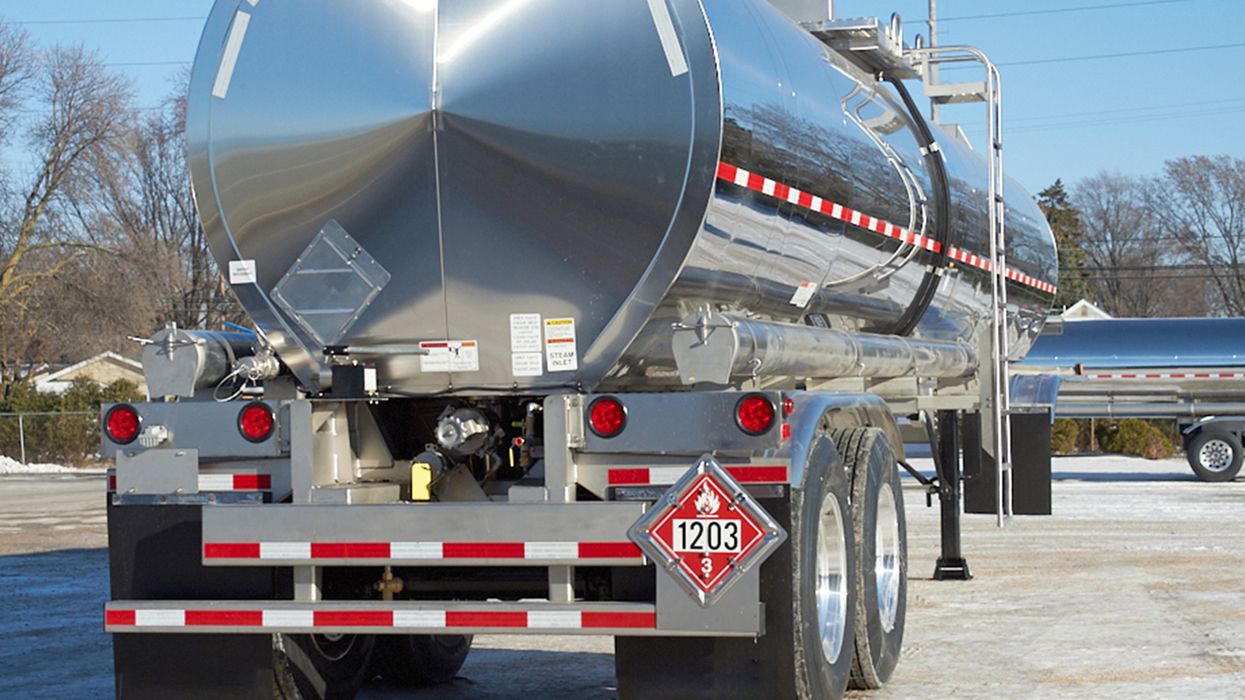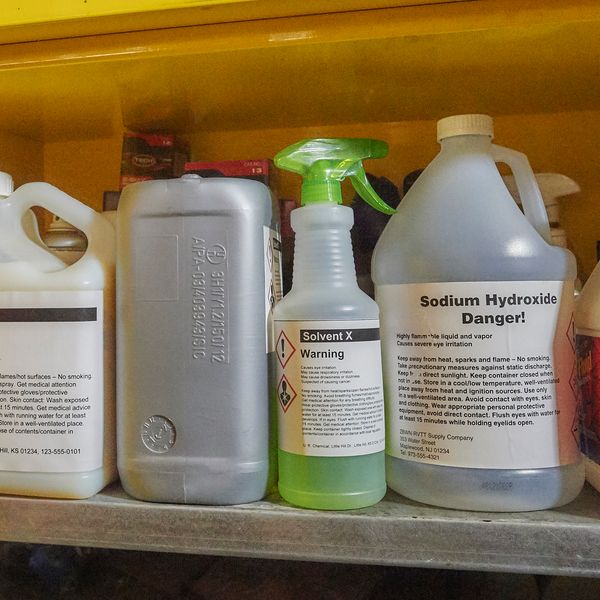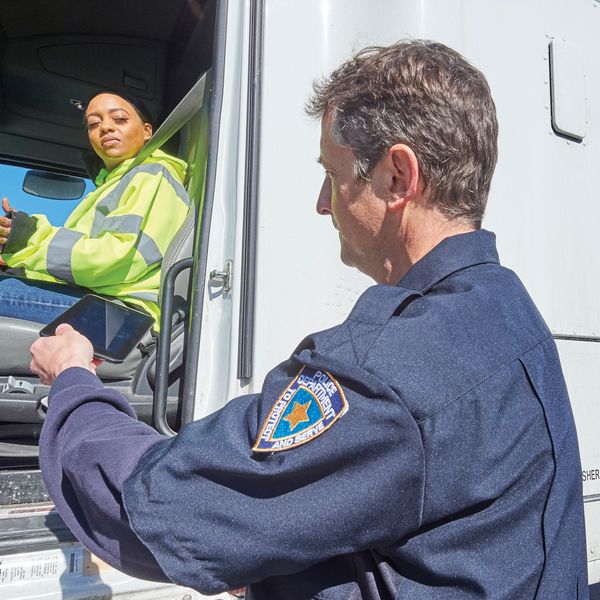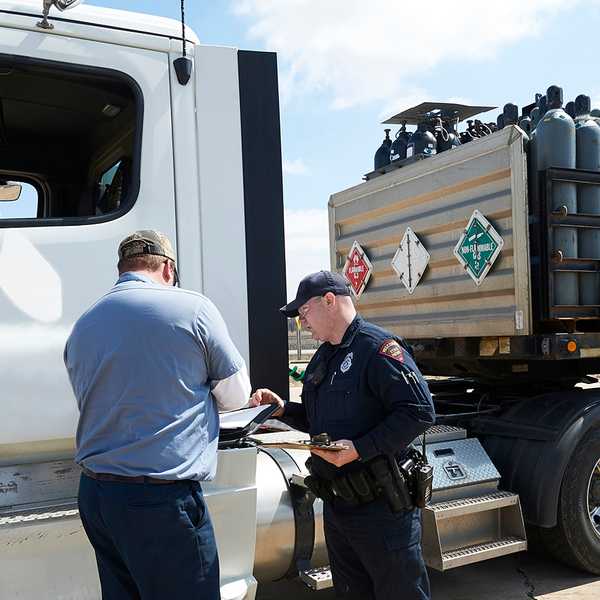The 2023 list is out: Avoid these top cargo tank facility violations
Motor carriers and other businesses regulated by the Federal Motor Carrier Safety Administration (FMCSA) paid some hefty fines last year for failing to comply with the agency’s safety regulations.
The FMCSA collected nearly $25 million in fines over the course of 2023, with an average penalty of over $7,000. One of the top spots of the year was claimed by a Florida-based cargo tank facility that paid a penalty of $160,000 for violations of the Hazardous Materials Regulations.
Check out the table below for the top cargo tank facility violations of 2023:
| Part number | Section | Description |
| 180 | 417(b)(1) | Failing to include all required information on test/inspection report |
| 180 | 407(h) | Failing to perform leakage test as prescribed |
| 172 | 704(a)(2) | Failing to train hazmat employee in function-specific training |
| 172 | 704(c)(2) | Failing to retrain hazmat employees every three years |
| 172 | 704(d)(1) | Failing to retain record of training for hazmat employee |
| 180 | 407(g) | Failing to perform a pressure retest as prescribed |
| 180 | 407(j) | Fail to properly bench test the pressure relief device |
| 180 | 407(d) | Failing to perform an external visual inspection as prescribed |
| 180 | 417(b) | Failing to include all required information on test/inspection report |
| 172 | 704(a) | Failing to train hazmat employees as required |
| 172 | 704(a)(1) | Failing to train hazmat employee on general awareness and familiarization |
| 107 | 502(b) | Failing to properly register prior to working on a cargo tank |
| 172 | 704(d)(5) | Failing to certify that hazmat employees have been trained and tested, as required by this subpart |
| 180 | 407(a)(2) | Subjecting cargo tank to pressure greater than allowable |
| 180 | 407(h)(5) | Failing to record results of leakage test |
| 180 | 407(i) | Failing to perform a thickness test as prescribed |
| 180 | 409 | Failing to meet the minimum qualifications for inspectors of cargo tanks |
| 180 | 416(b) | Hose assembly on compressed gas CT not marked with unique ID# |
| 107 | 503(a) | Failing to provide proper information in a registration statement for cargo tank |
Training is a popular violation
Since many violations on the list are related to training, beefing up your hazmat training program will go a long way toward avoiding penalties.
Under 171.8, training is required for hazmat employees who:
- Load, unload, or handle hazardous materials;
- Prepare hazardous materials for transportation;
- Are responsible for the safety of transporting hazardous materials;
- Operate a vehicle used to transport hazardous materials; or
- Are involved designing, manufacturing, repairing, or testing packaging use for transporting hazardous materials.
Under 172.704, training must include, at a minimum:
- General awareness/familiarization training,
- Function-specific training,
- Safety training,
- Security awareness training, and
- In-depth security training (if a security plan is required).
Also, retraining is required every 3 years, but may be needed sooner if:
- The regulations change and the change affects an employee’s job functions,
- An employee takes on new or different job functions or roles regarding hazardous materials, or
- The security plan changes.
And finally, hazmat employers must keep training records for 3 years for active hazmat employees (and for 90 days after no longer active). Ensure the training records include:
- The hazmat employee's name,
- Most recent training completion date,
- Description/copy/location of the training materials used,
- Name and address of the person providing the training, and
- Certification that the hazmat employee has been trained and tested.
Key to remember: Violations of the FMCSA safety regulations can be costly. You can learn from the mistakes of your peers by reviewing and avoiding the most common violations.
























































